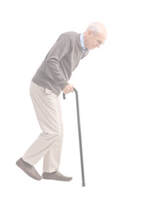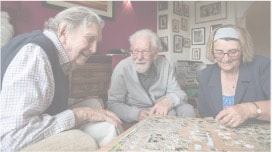|
It’s time… A daily routine is important for all people but it is particularly important for seniors.  Young or old, people are most afraid of the unknown. And as some lose control over their physical abilities, independence, or cognitive abilities, their world becomes filled with more and more unknowns, and if their days are unstructured and unpredictable, that can add more stress. That’s why having a regular daily routine helps both seniors and caregivers. Everyone knows what to expect and there’s no need to think or worry about what will happen next. Following a daily routine can reduce stress, increase the feeling of security and improve sleep. What is a daily routine? A routine means doing the same basic activities around the same time every day. This gives structure and a natural flow to the day. Having a routine also makes it easier to remember if the older adult has done necessary things like take medicine, use the bathroom, drink water, and eat. For example, part of a regular daily routine would be to wake up at 8 am, use the toilet, brush teeth, wash face, comb hair, change from pyjamas to regular clothes, then sit down to a hot breakfast of oatmeal and coffee. After that, the older adult would take their morning medications. When one creates a daily routine for an older adult, it should ideally be based roughly on their current daily activities so the adjustment isn’t too difficult. In addition, keep in mind that a rigid schedule is not necessary.  It makes the transition to home care easier When a senior accepts outside help, it can be difficult in the beginning to get used to having a new person in their life, especially now that the person providing care is taking on responsibilities that the senior used to do in the past. Reduced stress and anxiety Seniors who no longer have control over their lives may feel constantly stressed and anxious. They may feel disoriented or unsure about what’s going to happen in the next moment. This often happens when someone has Alzheimer’s, dementia, stroke or other health conditions that causes significant cognitive or physical impairment  Some older adults may have become too ill or frail to manage their days; they’re dependent on others for all the usual tasks of daily living. And when they’re so dependent, not knowing when or if their needs will be met is another source of stress. A predictable routine reduces stress and anxiety because seniors know exactly what will be happening, who will be helping them, how the activity will be done, and when it will occur. Over time, these routine actions will become part of their body memory. They won’t have to consciously think or worry about what’s coming next. Stop the power struggles Most people dislike being told what to do and when to do it and seniors are no exception. But if an older adult has a consistent daily or weekly routine, the activity is simply what’s done at that time (getting dressed, eating, bathing etc). Once a routine becomes a natural part of their life, they will be more likely to go with the flow of activities and won’t feel like you’re suddenly forcing them to do a certain activity. Increased co-operation Nobody likes disruption. When a carer and older adult both know what's going to happen and when, there is less stress and uncertainty in their lives. And when someone can anticipate the next task or activity, they can mentally prepare and will be more willing to participate than if they feel surprised by a seemingly random activity. Even if the older adult has dementia, their subconscious can develop a sense for the regular rhythm of the day. That helps them feel more comfortable and secure even if they aren’t outwardly aware of the routine. Reduce the need for decision-making Making decisions all day is tiring, even if they’re minor ones. A regular daily routine saves valuable mental energy because most of the tasks, timing and activities have already been decided. This significantly reduces the number of choices needed so energy can be spent on other things.  Improves sleep quality Having a regular daily routine also helps older adults sleep better. A study found that doing the same basic activities such has eating, dressing, and bathing at the same time every day improves sleep quality. Since many older adults have trouble sleeping through the night, creating a regular daily routine is a simple, non-drug way to improve the situation. Seniors, especially those with dementia and other cognitive impairments, have lower quality sleep. However, scientific studies now show that a daily routine results in better quality sleep, both by promoting a deeper sleep as well as a lengthier one. Quality sleep can improve mood and allow people to deal with events in their day in a much more positive manner than if they were sleep deprived. Build in time to enjoy each other With all the responsibilities of care giving, spending quality time with an older adult often gets pushed to the bottom of the ‘to do’ list. Make it easier to spend quality time together by building it into their daily, weekly or monthly routine. It could be as simple as starting each morning with a hug, ending the day with a bedtime song, enjoying a nice walk in the park every Sunday afternoon, or having lunch at their favourite restaurant once a month. From Aged Care NZ Issue 01 2022 Comments are closed.
|
AuthorShonagh O'Hagan Archives
July 2024
|

 RSS Feed
RSS Feed